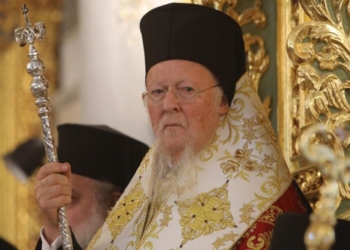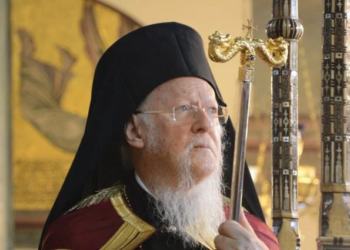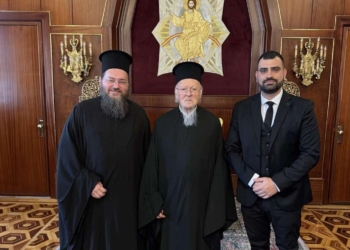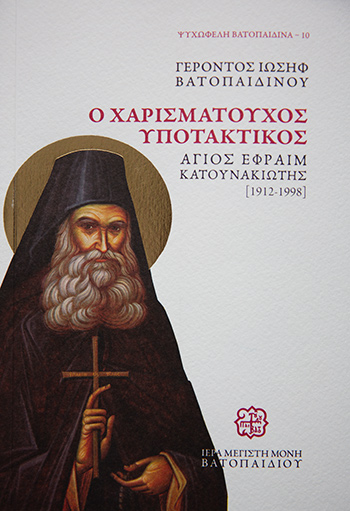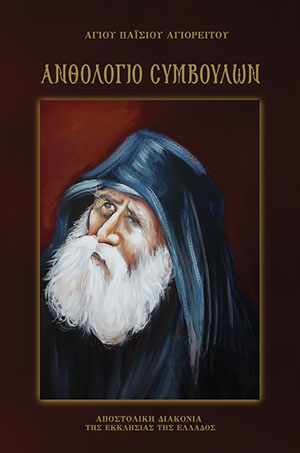Γαλλίας Εμμανουήλ: Στο Βατικανό βρίσκεται ο Σεβασμιώτατος Μητροπολίτης Γαλλίας κ. Εμμανουήλ ως εκπρόσωπος του Παναγιωτάτου Οικουμενικού Πατριάρχου κ.κ. Βαρθολομαίου στο Διεθνές Συνέδριο «Προωθώντας την Ηλεκτρονική Αξιοπρέπεια των Παιδιών».
Το Συνέδριο τελεί υπό την αιγίδα των οργανισμών Interfaith Alliance, Pontifical Academy of Social Sciences και Child Dignity Alliance.
Σήμερα το πρωί ο Πάπας Φραγκίσκος άνοιξε το Συνέδριο με επίσημη ομιλία και στη συνέχεια ο Σεβασμιώτατος Μητροπολίτης Γαλλίας κ. Εμμανουήλ μετέφερε το μήνυμα του Παναγιωτάτου Οικουμενικού Πατριάρχου κ.κ. Βαρθολομαίου.
Το εν λόγω Διεθνές Συνέδριο πραγματοποιείται με την ευκαιρία της 30ης επετείου της Σύμβασης για τα Δικαιώματα του Παιδιού και αφορά στην προστασία των παιδιών στον ψηφιακό κόσμο και την ευθύνη των θρησκευτικών κοινοτήτων.
Η Ποντιφική Ακαδημία Κοινωνικών Επιστημών έχει ως στόχο την προώθηση της μελέτης και της έρευνας, διασφαλίζοντας την ηθική διάσταση σε αυτές, την δικαιοσύνη, την ανάπτυξη, την ειρήνη ως ενθάρρυνση του διαλόγου μεταξύ επιστήμης και θρησκευτικής πνευματικότητας, καθώς και τις πολιτιστικές, φιλοσοφικές και θρησκευτικές αξίες.
Ακολουθεί το Μήνυμα Παναγιωτάτου Οικουμενικού Πατριάρχου κ.κ. Βαρθολομαίου στην Αγγλική γλώσσα:
Message of His All-Holiness, Ecumenical Patriarch Bartholomew to the Conference “Promoting Digital Child Dignity from Concept to Action”
Vatican City, November 14, 2019
In the Holy Gospel, our Lord Jesus Christ said: “Let the little children come to Me, and do not hinder them! For the kingdom of heaven belongs to such as these” (Matt 19:14). On this 30th anniversary of the United Nations Convention on the Rights of the Child, we would like to acknowledge the efforts of the International Community, civil society and faith-based institutions to protect children’s rights and dignity. It is important to bear in mind that, as the Holy and Great Council of the Orthodox Church, convened in Crete in June 2016, stated in its Message (§11): “Young people are not only the future, but also the dynamic and creative present of the Church, both on a local and on a worldwide level,” upon which the future is being built.
Our deepest gratitude goes to all the organizers of this joint ecumenical meeting for uniting all faith communities and other partners in a quest to safeguard our children, the most vulnerable people on earth. Their vulnerability is due not only to wars, crises, political instability, criminal networks or climate change, but also due to the threats of the digital age. It is important to remember that, according to UNICEF, one in three internet users worldwide is a child, and young people are now the most digitally-connected of all age groups. From photos posted online to medical records stored in the cloud, many children have a digital footprint well before they can even walk or talk. In this sense, we are facing times of great sociological and anthropological transformations. The digital world has become a space of discovery, especially in terms of human behavior and relationship, but it is also a space of danger and uncertainty.
During the last century, humanity succeeded, in a way, in establishing childhood as a period of human life worthy of protection. Today, however, despite the fact that children are in need of their childhood, of a protected space, we tolerate the invasion of media in children’s lives. Television, the internet and the constant exposure of children to the digital world lead to the so-called “disappearance of childhood,” resulting in a radical change in children’s lives, a decrease in the span of their childhood, and in an early induction into adulthood together with its problems and contradictions, as well as in a change in the relationship between parent and child.
New technologies have weakened the role of family in the education and formation of children, making the computer the main source of values. Computers, televisions, smart phones and tablets are not good babysitters, nor are they good fathers, mothers or teachers. Digital-media addiction leads us to a “superficial relationship” with ourselves and the world, and it promotes the identification of reality with virtual reality. On the one hand, “anonymity” in the digital space lowers our self-control and our sensitivity to moral values. On the other hand, it empowers our propensity for aggression, and truly leads to an increase of violence and lawless activities in the real world. It is not a coincidence that we have experienced a significant increase in child crime. Additionally, through digital communications, children are forced to be part of a competitive lifestyle: they are transformed into consumers and they become accustomed to considering money as their highest value. And even worse, cruel and perverted minds exploit children through the internet, promoting child pornography, and cultivating fanaticism and aggressive behavior.
To tackle the abovementioned manifold challenges of today’s world, protecting children and their childhood is crucial. On November 21, 2018, during our Keynote Address at the World Children’s Day Celebration Event in Geneva, we stated that: “For Orthodox Christianity, the highest ethos is the renouncement of our individual rights in the name of love (ἀγάπη)—for the sake of the protection of the rights of the other. Consequently, we defend the rights of children and promote the protection of their integrity. We strive to uphold their dignity in the digital space, to eradicate their abuse and exploitation, together with all forms of violence and discrimination.”
In our 2016 Christmas Proclamation, we declared 2017 as the Year of Protection of the Sacredness of Childhood, appealing to all the world to respect the identity and sacredness of childhood and inviting everyone to recognize and respect the rights and integrity of children, “in light of the global refugee crisis that especially affects the rights of children; in light of the plague of child mortality, hunger and child labor, child abuse and psychological violence, as well as the dangers of altering children’s souls through their uncontrolled exposure to the influence of contemporary electronic means of communication and their subjection to consumerism.”
While humanity has labored for the protection and preservation of childhood for the last century, the “century of the child” and the “century of education,” we are shortening the span of childhood through the “optical” and “digital” revolution of the television, the Internet, smartphones and tablets. The power of formation and the space in which we can educate children is rapidly shrinking. It has been rightly highlighted that mankind has once again begun to forget that children need an authentic and “protected childhood experience.”
In this spirit, we, therefore, declare: every year, every day, every moment is a timely opportunity for the protection of the sacredness of childhood. For us Orthodox Christians, the most frequently encountered and impressive holy icon is that of Jesus Christ as a child—a true child and a true God—embraced by His All-Holy Mother. In Christian Faith, God Himself assumed flesh as an infant and called us to become “like little children” (Matt 18:3), so that we may be deemed worthy to become gods by Grace.


